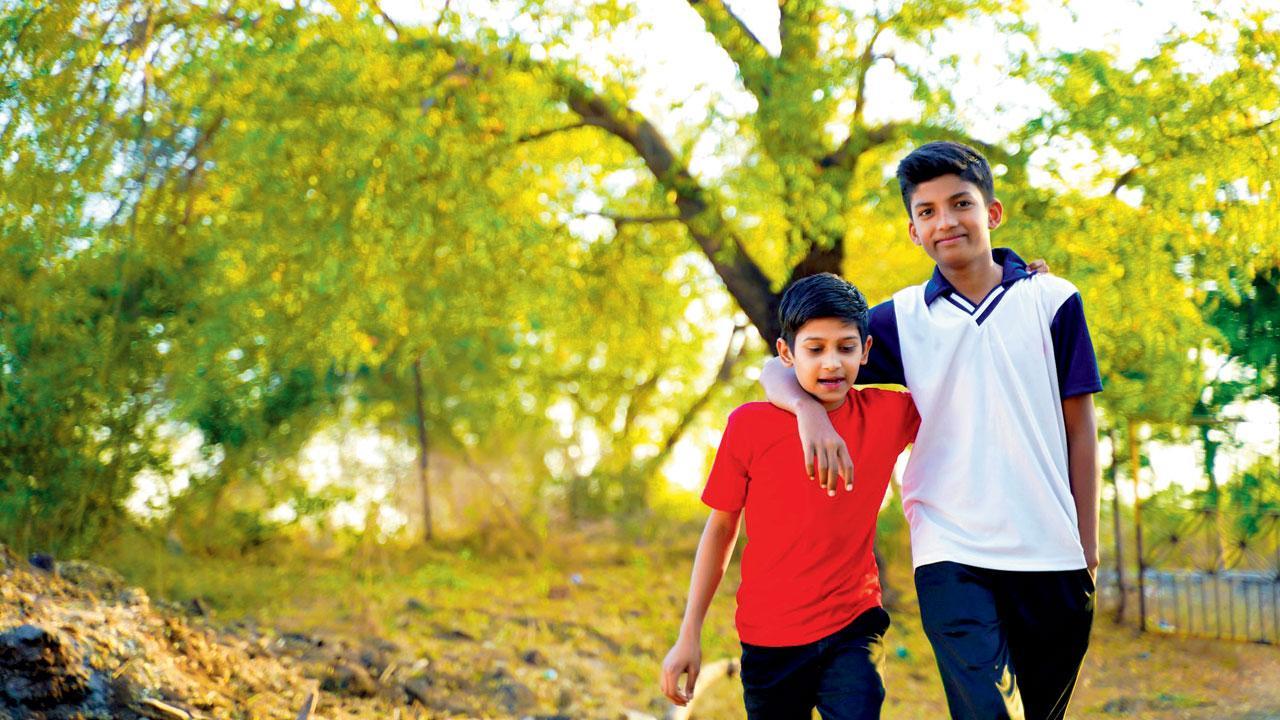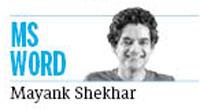More than several others, I think there are two distinctive personality types—the elder and younger one, if you have siblings!

While there are no surefire rules, the elder ones seem more the mirror image of parents. Parents get significantly chilled with subsequent children. Representation pic
 Until a certain age for many, and tragically lifelong for some—the desi family is a benevolent dictatorship. Patriarchy is obviously its common synonym.
Until a certain age for many, and tragically lifelong for some—the desi family is a benevolent dictatorship. Patriarchy is obviously its common synonym.
ADVERTISEMENT
I suspect from fatherhood, as an accepted autocracy, flows values that define children’s worldview first. Particularly for men, you might notice, when it comes to how they perceive women, religion, money,
and the like.
For instance, writer Javed Akhtar told me once (will bring him up later as well): “No matter how much a person hates their dad—even if they’re in an eternally estranged relationship—what you’ll never hear someone say, or believe, is that their father was an idiot. If the dad is a religious fanatic or bigot in general, good chances are, the kid will turn out to be one, too!”
Of course, the reverse also can be true, wherein the more benevolent parts of dictatorship kick in equally. Unsurprisingly, say, the hero in the sexist Swat District’s 1997-born Nobel Peace laureate Malala Yousafzai story, you realise, is foremost her father, Ziauddin.
This parental influence tallies with popular psychology suggesting a personality is more or less formed by age seven. Which, in turn I suppose, determines youth outcomes.
Now, this isn’t a “nature versus nurture” debate. Even within the family, potential consensus among psychologists appears to be that age 12 onwards (teenage, basically), it is actually peers, who hold an inordinately greater influence, than parents do.
Within these peers, the most underrated one I find from rudimentary reading on the subject seems to be sibling/s, if any. They’re obviously Peer No. 1. Is there a particular determinant of this influence? Salman Akhtar, one of America’s top psychoanalysts, once told me during an interview that the age gap has got everything to do with it.
Salman, incidentally, is writer Javed’s younger brother—only 17 months apart. He said, “When I was born, Javed was not a fully-formed self. Such siblings become ‘mental twins’. On the one hand, an uncanny empathy gets created between the two. Even now when I hear anything of interest, I immediately think Javed would’ve liked this, or laughed at that. When I call him, I realise I am right. Then again, such siblings begin to think and behave in the same manner as well. They need distance to create separate identities.”
This prevention of “psychological twinning”, Salman reckoned, was essential, especially with siblings four-and-less years apart. Does this claustrophobic over-familiarity—with senior and junior roles permanently defined—also easily breed contempt, as you notice with warring siblings in family businesses?
Is it even a good idea for them to be in the same profession to begin with? In which case I usually find the elder one doing better, because they had a head-start? The entertainment industry is quite full of such examples; guessing, applies to industries in general?
In sport, it’s the opposite, you notice, and as a study suggests—perhaps because the younger one gets to perennially practise with the older one on the same playfield, automatically/ significantly improving the junior’s game?
To let you in, I’m borderline obsessed with classifying people into distinct types, in urbane, deracinated, cosmopolitan societies, where all things being equal—religion, caste, colour, etc. seem significantly less important markers, than if you’re a morning/night person, drinker/non-drinker, single/married, city/nature type…
Of many such distinctions, I think, broadly, the world can be divided between the elder siblings and the younger ones. If you pay attention, at least in nine of 10 cases, you can tell one from the other. That, I’m pretty sure, is a higher strike rate than telling Coke from Pepsi in your glass.
Of course, there are no surefire rules. But the elder one seems more the mirror image of parents, who were born (as parents) the same time the child was—who, in turn, bears the force of both their expectations and their inexperience more. Parents get significantly chilled with subsequent children—the first one understandably being the real/tentative experiment, setting a fine example.
Does that make the elder one, relatively more measured, quasi-parental, responsible, and risk-averse? Perhaps. And the younger one, a little more emotionally carefree, having lived with more flexible rules? Maybe.
As a second sibling, I for one, find myself viscerally attracted to the ‘elder personality type’—although it could be a coincidence, or just that there is already a bathroom mirror to look at myself!
My casual spot surveys with the ‘sibling personality types’ also suggest a few things common to their individual experiences. Most younger ones have felt the parents, including grandparents, being subconsciously partial towards the first child, in their division of love/affection!
The elder ones found the younger sibling emulating/copying them way too much. Of course these are childhood responses. This jugalbandi of the common Indian, upper/middle-class, two-children nuclear home, inevitably, becomes irrelevant after a point.
Only once you casually survey the same demographic, past their 30s now—outside of those who don’t want a child at all; a personal call—you meet more and more parents, who don’t want a second child.
Stopping at one is both an economic and logistical choice. At least among friends/ acquaintances, I find the ‘single child’ altogether dominating the subsequent ‘personality type’. Would that be the most outward looking generation? Don’t know; go easy on their screen time, I guess? Or not!
Mayank Shekhar attempts to make sense of mass culture. He tweets @mayankw14
Send your feedback to mailbag@mid-day.com
The views expressed in this column are the individual’s and don’t represent those of the paper
 Subscribe today by clicking the link and stay updated with the latest news!" Click here!
Subscribe today by clicking the link and stay updated with the latest news!" Click here!








